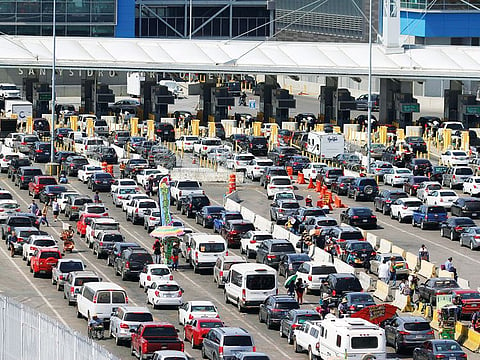US Supreme Court temporarily keeps in place COVID-era border restrictions on migrants
Supreme Court's order means Title 42 will stay in place as legal arguments play out.

Washington/Ciudad Juarez, Mexico: The US Supreme Court on Monday said COVID-era restrictions set to end this week should temporarily stay in place as a Republican legal challenge moves forward, just as the White House and border communities had been prepping for an increase in the number of migrant crossings.
Chief Justice John Roberts agreed to pause the restrictions known as Title 42 after a group of states with Republican attorneys general said lifting the measure would saddle their states with additional costs if more migrants entered.
A US judge ruled last month that Title 42, which and blocks many migrants from seeking asylum, is unlawful but the states sought to overturn that decision.
The Supreme Court gave both sides in the legal dispute until Tuesday at 5 p.m. ET to respond. The order means Title 42 will stay in place as the legal arguments play out.
The administration of U.S. President Joe Biden had been preparing for the order to end on Wednesday and press secretary Karine Jean-Pierre said in a press conference the White House was seeking more than $3 billion from Congress to pay for additional personnel, technology, migrant holding facilities and transportation at the U.S.-Mexico border.
The push for additional resources came as US authorities had been preparing for the possibility of 9,000-14,000 migrants per day trying to cross into the United States if Title 42 was lifted, around double the current rate.
Title 42, aimed at slowing the spread of COVID-19, was issued in March 2020 under Republican former President Donald Trump, an immigration restrictionist. Biden, a Democrat, kept it in place for more than a year.
The Biden administration has been weighing plans to prepare for Title 42's end, with government officials privately discussing several Trump-style plans to deter people from crossing, including barring single adults seeking asylum at the U.S.-Mexico border.
Jean-Pierre declined to say whether plans to restrict asylum access are moving ahead, but said there would be additional announcements on Tuesday.
The U.S. Department of Homeland Security (DHS) last week updated a six-pillar plan that calls for the expanded use of a fast-track deportation process. The revised DHS plan also suggests there could be expansion of legal pathways for migrants to enter the country from abroad, similar to a program launched for Venezuelans in October.
Jean-Pierre stressed that migrants entering illegally could still be removed via other means even if eventually Title 42 is no longer in place.
"We know smugglers will try to spread misinformation to take advantage of these vulnerable migrants," she said. "But I want to be very clear here. The fact is that the removal of Title 42 does not meant the border is open."
Sign up for the Daily Briefing
Get the latest news and updates straight to your inbox


